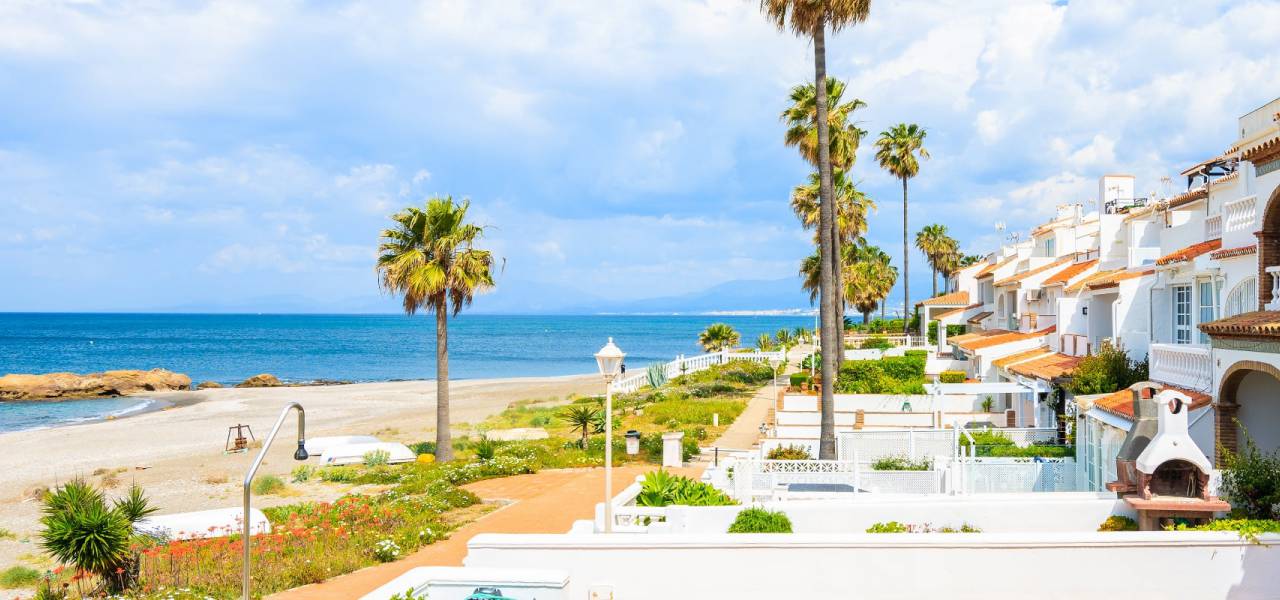How to Legally Rent Out Property in Alicante: Licenses for Airbnb and Booking.com
Renting out property in Alicante through popular platforms like Airbnb and Booking.com can be a great source of income, particularly with the city’s booming tourism industry. However, to avoid legal issues and fines, it's essential to understand the local regulations and obtain the proper licenses before listing your property for short-term rental.
In this guide, we’ll walk you through the key steps for legally renting out your property in Alicante, covering the required licenses, registration process, and ongoing obligations to ensure your rental business complies with the law.
For more detailed information, visit How to Legally Rent Out Property in Alicante: Licenses for Airbnb and Booking.
Why Licensing Matters for Short-Term Rentals in Alicante
Spain, including Alicante, has seen a significant rise in short-term rentals in recent years, leading to stricter regulations. The local government requires hosts to obtain a tourist rental license to ensure that properties meet certain standards and that taxes are properly collected.
Renting your property without the correct license can result in heavy fines, with penalties in some cases reaching up to €30,000. Therefore, securing the proper permits is crucial for operating legally and protecting your investment.
Step 1: Determine if Your Property Qualifies for a Tourist Rental License
Before applying for a rental license, check whether your property qualifies. In Alicante, properties must meet specific criteria:
- The property must comply with local building and safety regulations.
- It should be in a habitable condition with adequate furnishings, including essentials like beds, cooking appliances, and bathrooms.
- The building must allow short-term rentals, meaning your community of neighbors or homeowners association does not have rules prohibiting tourist rentals.
Additionally, if your property is located in a regulated tourist zone, there may be additional restrictions or conditions for obtaining a license.

Step 2: Register for a Tourist License in Alicante
To legally rent your property through platforms like Airbnb and Booking.com, you must apply for a tourist rental license with the local authority. This involves submitting an application to the Tourism Registry of the Valencian Community (Registro de Turismo de la Comunidad Valenciana).
Here’s how you can go about it:
- Obtain the necessary forms from the regional tourism office or their website.
- Provide information about the property, including its location, size, and amenities.
- Ensure the property meets the basic standards for safety and habitability.
- Submit required documentation, such as proof of ownership, an energy efficiency certificate, and liability insurance.
Once your application is processed and approved, you will receive a unique registration number for your property, which must be displayed on all listings.
Step 3: Comply with Local Regulations and Tax Obligations
Even after obtaining your tourist rental license, it’s important to stay on top of local regulations. Here are some key obligations for short-term rental hosts in Alicante:
1. Tax Registration
You will need to register for tourist tax payments. Alicante requires property owners to collect a tourism tax from guests, which is then submitted to the local tax authority.
2. Reporting Guests to the Police
In Spain, it is mandatory to report the details of every guest to the National Police or Guardia Civil. This process, known as the guest registry, must be done within 24 hours of a guest’s arrival. You can report guest information online through the corresponding police platform.
3. Health and Safety Standards
Ensure that your property adheres to all local health and safety guidelines. This may include having proper fire alarms, safety equipment like fire extinguishers, and providing clear emergency exit instructions for guests.
4. Noise and Conduct Rules
Alicante has strict rules around noise and disruptive behavior in tourist areas. Make sure your guests are aware of community rules, and implement house rules in your Airbnb or Booking.com listing to help prevent any issues with neighbors.
Step 4: Promote Your Licensed Property on Airbnb and Booking.com
Once you’ve secured your tourist license and registered your property, you can legally list it on popular platforms such as Airbnb and Booking.com. Be sure to highlight your license number in your listing, as it adds credibility to your property and reassures potential guests that you are fully compliant with local regulations.
Some key tips for maximizing visibility and bookings include:
- Professional photos: High-quality images of your property can significantly boost interest.
- Detailed descriptions: Describe the property, its location, and amenities in a compelling way.
- Competitive pricing: Research similar listings in your area to ensure your pricing is competitive.
- Guest reviews: Encourage satisfied guests to leave positive reviews, as this will enhance your listing’s ranking.
Benefits of Using Professional Property Management
If managing the day-to-day aspects of a short-term rental feels overwhelming, consider hiring a professional property management company. These companies can handle everything from guest communication to cleaning and maintenance, ensuring a seamless experience for both you and your guests.
A property management company will also ensure that you stay compliant with all legal requirements, including tax filings and guest reporting. This can significantly reduce the burden on property owners, allowing you to focus on maximizing rental income.

Renting out your property in Alicante through platforms like Airbnb and Booking.com can be a profitable venture, but only if you comply with the local laws and obtain the necessary licenses. Following the steps outlined in this guide will help you navigate the process of securing a tourist rental license and staying on top of tax and safety obligations.
By legally renting your property, you’ll enjoy peace of mind and the opportunity to tap into Alicante’s thriving tourism market.

